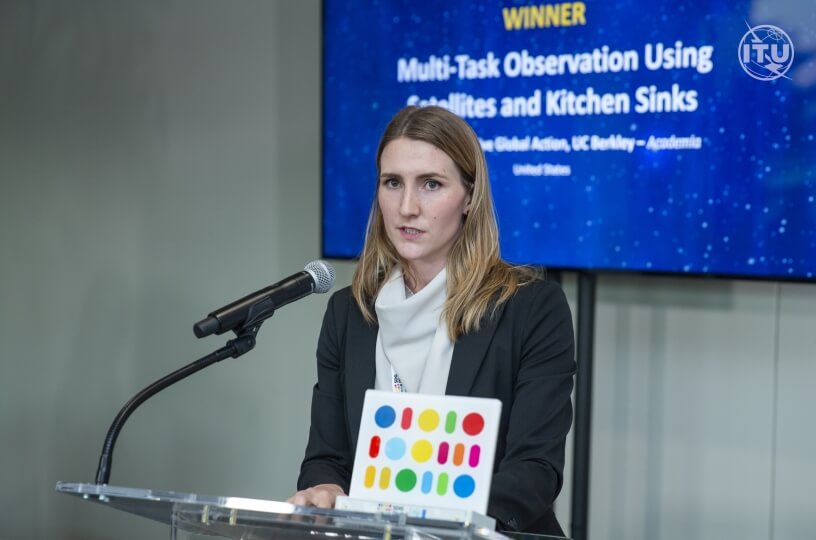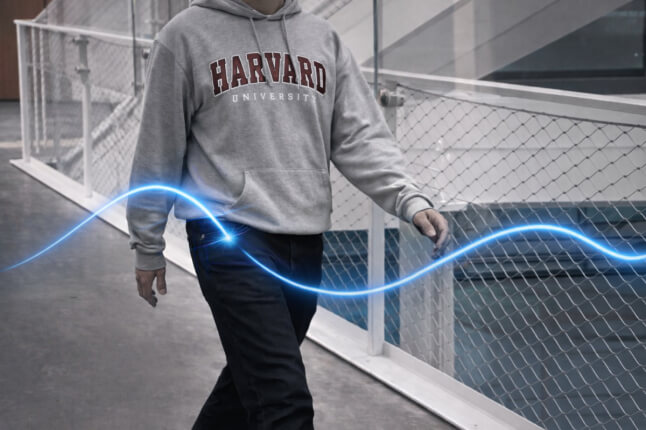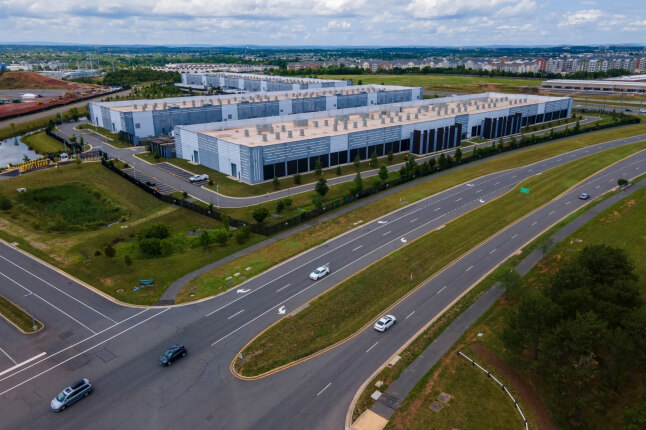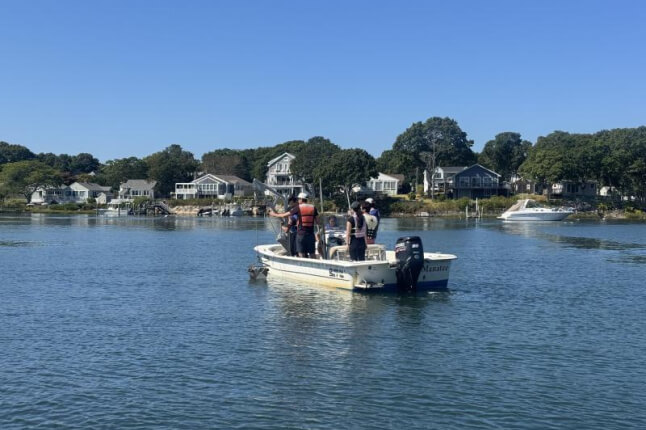News
SEAS postdoctoral researcher Esther Rolf accepts her United Nations “Strategic Development Goals Digital Gamechanger Award''
Satellite imagery and data can help track population density, deforestation, housing availability, methane emissions, light pollution and more. But with over 6,000 currently active public satellites, the amount of data available can be overwhelming for researchers, and the computational power needed to process the imagery exceeds the capability of most commercially available computers.
Esther Rolf wants to change that. A postdoctoral fellow with the Harvard Data Science Initiative (HDSI) and Center for Research on Computation and Society (CRCS) at the Harvard John A. Paulson School of Engineering and Applied Sciences (SEAS), Rolf co-designed MOSAIKS, a system that combines machine learning with satellite imagery to sift through terabytes of data to easily and quickly generate net data sets and maps. MOSAIKS stands for “Multi-task Observation using Satellite Imagery and Kitchen Sinks,” referring to kitchen sink statistical regressions in which many variables are combined in a single analysis.
MOSAIKS is easy to access – all you need is an email address to register. A standard laptop can run it, and it currently has registered users from at least 18 countries and 48 academic institutions.
Rolf’s research recently received the United Nations’ “Strategic Development Goals Digital Gamechanger Award'' in the “Planet” category. The award recognizes digital products and technologies working to advance the UN’s Strategic Development Goals, a set of 17 objectives created in 2015 to guide global development over the ensuing 15 years. The goals include “no poverty,” “quality education,” “clean water and sanitation,” “affordable and clean energy,” “and sustainable cities and communities.”
MOSAIKS is useful for a lot of different people: researchers, policymakers, students getting into the field for the first time, and, especially, for people who may have resource constraints. Having a project where you can see the research contribution change and have impact in the real world is so exciting and so motivating.
“There are so many of the SDGs that can be helped with environmental and planetary monitoring, and satellite imagery is a huge source of information for that.” said Rolf, one of five winners out of more than 450 submissions. “If you look at the award winners and runners-up from the other categories, it was a surprise to get that recognition as an academic team. This speaks to the amount of effort and consistent work our broader team has put into making this actually helpful and accessible.”
Esther Rolf, postdoctoral researcher in the Harvard Data Science Initiative and Center for Research on Computation and Society
Rolf developed MOSAIKS as part of her Ph.D. research in computer science at the University of California-Berkeley, and her research was first published in Nature Communications in 2021. She worked on an interdisciplinary team whose interests included computer science, environmental economics, public policy and statistics, and that same interdisciplinary approach drew her to Harvard for her postdoctoral fellowship. She now uses MOSAIKS frequently with her research with faculty advisor Milind Tambe, Gordon McKay Professor of Computer Science and CRCS Director.
“I mostly focus on geospatial problems such as environmental monitoring,” she said. “The CRCS and HDSI are places where this type of interdisciplinary conversation and development is happening. It’s exciting for computer scientists who want their research to be more interdisciplinary or focused on social impact to be able to have these hubs of people. Now there’s a network of people that can help and have conversations, and it’s a network I’ve relied on and am now happy to be part of.”
Rolf will finish her two-year fellowship this spring, and next fall will become a computer science professor at the University of Colorado-Boulder. She has always wanted to use her computer science training to help the world, and she’ll soon be able to help impart that passion onto the next generation of computer scientists.
“I love math, I love statistics, and I love computing,” she said. “I find them all very powerful, that we can use math and statistics to describe the world and then combine that with optimization in computer science to make solutions that work fast.”
Topics: AI / Machine Learning, Awards, Climate, Computer Science, Environment, Environmental Science & Engineering
Cutting-edge science delivered direct to your inbox.
Join the Harvard SEAS mailing list.
Press Contact
Matt Goisman | mgoisman@g.harvard.edu



